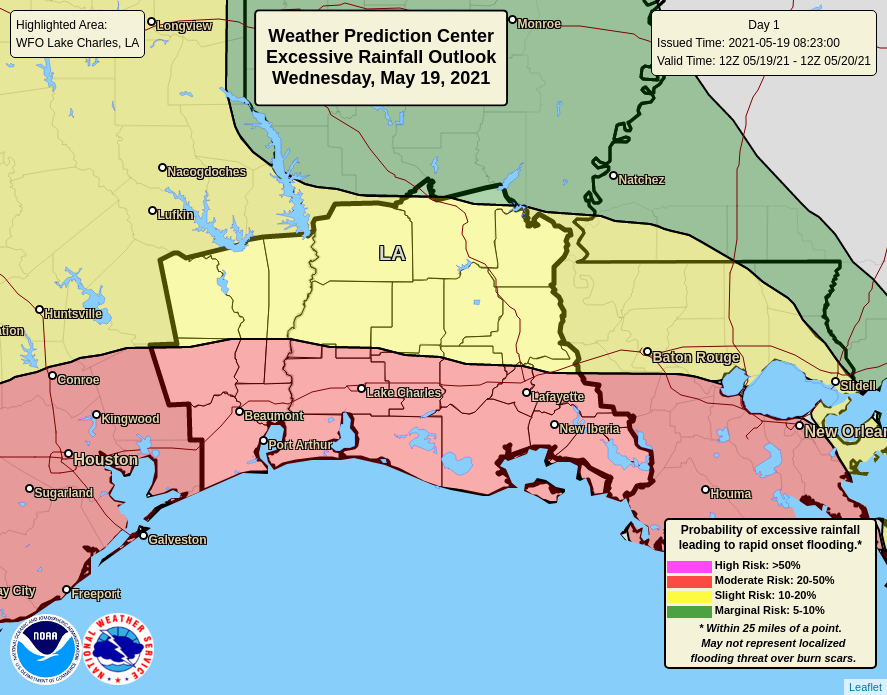No confirmed cases of measles in OC
Published 12:00 am Saturday, February 9, 2019
From staff reports
A measles case confirmed in Denton County has risen the number of Texas cases to seven.
This news comes right before a Bridge City mother took to Facebook to clear up rumors about her child.
Chauntel Romero, who is “usually very private,” said via Facebook that her 10-month-old daughter was brought to St. Elizabeth Hospital on Thursday to have blood drawn to see if she has measles. The child is a twin, the mother said, and both babies are up to date on their vaccinations though they cannot take the measles shot until they are 12 months old.
“Also, nothing has been confirmed… we haven’t gotten the results back,” Romero said in the post.
She added the family is quarantined to their home and will not be leaving until they have answers.
Orange County Emergency Management Coordinator Joel Ardoin said, “There are no cases of measles in Orange County. There is one suspect case and they are doing testing. But at this time there are no confirmed cases of measles in Orange County.”
A spokesperson with Christus Southeast Texas said federal privacy laws prohibit them from sharing information specific to a patient’s medical history and that the safety and well-being of their patients is always a top priority.
A statement released by Christus Southeast Texas Health System states that St. Elizabeth is not treating any persons with measles or suspected measles.
“As measles cases are reported throughout Texas, there has been recent concern circulating in our community. Christus Southeast Texas wants to ensure our associates and community are informed of the latest community health issues,” the statement read. “Out to priority at Christus St. Elizabeth is the safety and well being of the patients and visitors we are privileged to serve each day. As with all hospitals, our nurses and doctors are exposed to a range of infectious diseases daily while providing care for our community, and they take the proper precautions to ensure a safe and healthy environment at our hospitals and facilities, for themselves, patients and visitors alike.”
The statement goes on to remind the public to proactive proper hygiene and infection control during this flu and cold season and as measles cases continue to be reported in Texas.
This includes washing your hands frequently with soap and water, avoiding work or school if you are sick, and asking sure you are up to date with the proper vaccines to prevent against these viruses, as recommended by the Centers for Disease Control and Prevention.
Judith Smith, director of Health Services for the city of Port Arthur, said there have been no confirmed cases in Port Arthur and that the department is in contact with state health officials.
“It has been a while since we have had any cases of measles,” Smith said. “We are hoping and praying we don’t see that here.”
But the chance of measles appearing is possible as parents opt out of vaccinating their children. Those children are in schools and daycares and in the community.
Texas Department of State Health Services
The Texas Department of State Health Services issued an update on the measles situation on Feb. 5.
“Five measles cases, four between the ages of 12 to 21 months, have been reported in three different counties within the Department of State Health Services Region 6/5 South (Southeast Texas).
Vaccination remains the most effective method for preventing measles. Two of the cases had their immunizations administered only 1 – 3 weeks prior to developing symptoms. Genotyping has revealed the cases were B3 strain, the most common strain currently circulating in Mexico and the second most common strain seen in Canada and the United States. The current vaccine, which contains strain A, is effective against B3 and has demonstrated a high protection rate (95-98 percent seroconversion with the first dose and 99 percent with the second dose).
One of the cases was an adult linked to one of the infant cases.
Measles is highly contagious and early identification remains a critical public health measure to reduce the spread of the disease. We are working with local health departments regarding the reported cases.”






